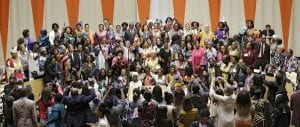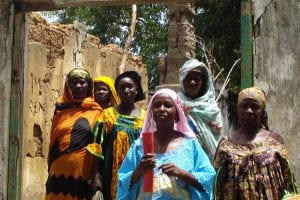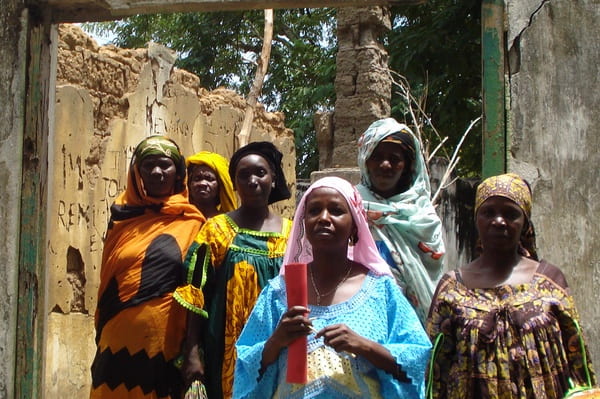by Grace Ndanu

Gender inequality has existed since the Old Testament time. In Kenya, we see that even before the British colonialists came, the society was ruled by men. African men made the decisions in the society and set the rules that the community was to live by. This was through the council of elders that existed in most societies. Few women occupied public positions of power. The one common position that did hold some power was the position of medicine woman. In every community there are cultural practices that are regarded as a must. Among the Maasai there is a practice by the name Female Genital Mutilation, which is supposed to prepare a girl for marriage. This practice is usually ordered by the girl’s father, and it is expected to be performed by a woman.
Historically in Kenya, the place of women was largely in the house and revolved around looking after the welfare of her homestead. Basically this meant doing all the house chores and taking care of the old and the children. Men, on the other hand, were generally their own masters. They dictated what is permissible and what was not. Men were the warriors of the community, decision makers, and heads of families, and in that capacity they dictated what was expected of the family. For example, where I come from we have a council of elders, which is comprised of men only. This council directs everything that is going on in the community, starting from which girl is old enough to get married to which man is she supposed to marry. This could mean an eleven-year-old girl is forced to marry a seventy-year-old man. When these men are in their meeting no woman is to be seen around. The resistance to women based on their gender has remained the facilitating tool for keeping inequity against women. Recently I discovered that Kenya has the lowest female representation in the whole of Africa with 9.8%, compared to Rwanda 56.3%, Tanzania 36.0%, Uganda 35.0% and Burundi 30.5%. In South Africa women represent 55%, meaning they have the capability of being good leaders and we have an opportunity to prove this.
The Kenyan constitution of 2010 promotes the participation of women and men at all levels of governance and make provisions for at least 1/3 of the seats in county assemblies as well as at least 1/3 of the seats of the senate. The constitution also provides for the enactment of legislation to compel political parties to be democratic and have women in their decision making organs. Article 81(b) of the constitution provides that “not more than two-thirds of the members of elective public bodies shall be of the same gender.” But that is not the case.

However, despite all the difficulties that hinder women from public participation there is finally a light. Through the constitution, Women and men have the right to equal treatment, including the right to equal opportunities in political, economic, cultural and social spheres. The two-thirds gender principle was articulated in the 2010 Constitution; however, the country marked the 10th anniversary of the constitution last month, and nothing has happened so far. In clause (6) (b) of the constitution it states that, “the chief justice shall advice the president to dissolve parliament.” Therefore the top Kenyan Judge who is nearing the end of his term as Kenya’s second chief justice under the new constitution just advised the president to dissolve parliament due to failure to enact the law that provides the gender balance. I think this was a really brave step. In his letter to the president he included,” Kenyans must be ready to suffer, if only to hold elected parliamentary representatives accountable”. This left the representatives uncomfortable and started to challenge the chief justice. I have faith he will win.
Last semester I had a unit by the title Women and Governance. In this unit I learned that stereotypes lock out women, especially in countries like Kenya that are highly patriarchal. Until recently, women have had a more difficult time getting elected to these political positions. Last year, a candle was lit in one of the famous universities in Kenya when the University of Nairobi) elected the first chairlady (president) in history. I hope many young ladies were touched and inspired like I was. The difficulty of being elected as a political leader is associated with the possibility that voters may be more comfortable with electing women to the legislature than to executive office. This difficulty appears to be due to stereotyping of candidates and of political offices based on the expected policy issues that these offices address. For example, female candidates are expected to be warm, gentle, kind and passive. Male candidates on the other hand are perceived as tough, aggressive and assertive. As a result, voters view male candidates as more competent than female candidates when dealing with issues associated with the executive branch, such as security and economics. For example when elections revolve around security and crime issues, voters tend to view women as ill-equipped to deal with such issues. Thus they do not vote for women.
Inequality and discrimination, whether based on race, colour, language, religion or sex often takes similar forms in practice; however, there are specific characteristic of discrimination against women that do not occur elsewhere. Sex, attitude, beliefs, prejudice and myths are much more deeply rooted in the basic structures and human behaviour than are many other customs, norms and traditions (for example, that women should never speak or give opinions where men are present). This is more like shutting them up because society is comprised of both men and women and if they have to give opinions publicly they will have to stand with their heads up before women and men, which is more disliked by men.
I believe that the time has come for people to realize and appreciate that women have both a right and obligation to actively participate in political leadership. Also women themselves must believe in themselves and come out of their comfort zone and start doing what is necessary. And they will be great.

